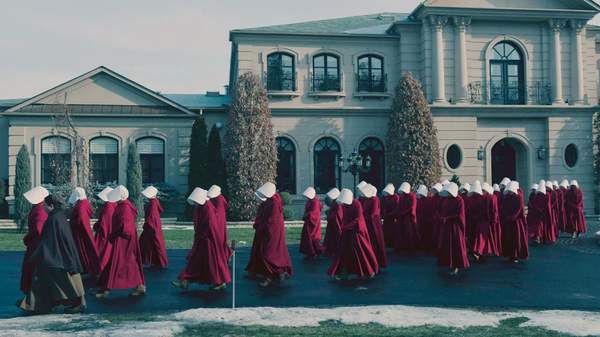Overview
If there's one place that no television or literature fan wants to live, it's Gilead, the dystopian society at the centre of The Handmaid's Tale. But while aspects of the oppressive community bear uncomfortable resemblances to modern society, it's thankfully a fictional construct — well, except for the name.
In what proves to be a mighty hefty case of bad timing, developer Lendlease is currently promoting a new masterplanned site in Sydney's far southwest that shares its name with the republic in which The Handmaid's Tale is set. To be fair, the name Gilead actually springs from the bible, where it refers to two different regions. And, in Sydney, its use pre-dates everyone's present obsession with the Hulu TV show — and Margaret Atwood's 1985 novel — too, with an existing farmland-filled suburb first getting the moniker 200 years ago.
Still, trying to promote a planned community called Gilead at the moment is both hilarious and unfortunate — and, you'd think, a bit of a tough sell. Masterplanned sites have shaped the Australian suburbs since the 50s, with developers snapping up parcels of land, filling them with houses and usually giving them scenic-sounding titles. When it acquired the land in 2015, we're sure Lendlease didn't anticipate that the dystopian novel would re-enter popular culture, but, now that it has, Gilead doesn't quite have the same ring to it.
The real-life Gilead will be situated ten minutes by car from Campbelltown and Camden, and 40 minutes from Wollongong. It's described on the development website as "perfectly combining a rural lifestyle with the convenience of urban living". No mention of living under his eye, thankfully.
But the 210-hectare site isn't without its non-Handmaid's controversies, either. Both before and after the area was rezoned in 2017 — making the building of 1700 new homes possible subject to final approvals — it has been met by disapproval. Locals contend that colonial and Indigenous history would be compromised by the development, as reported in the Wollondilly Advertiser, with other concerns spanning not only the site's heritage, but the wildlife and environmental impacts. Okay, now that does sound like something you might see on a dystopian TV show.
